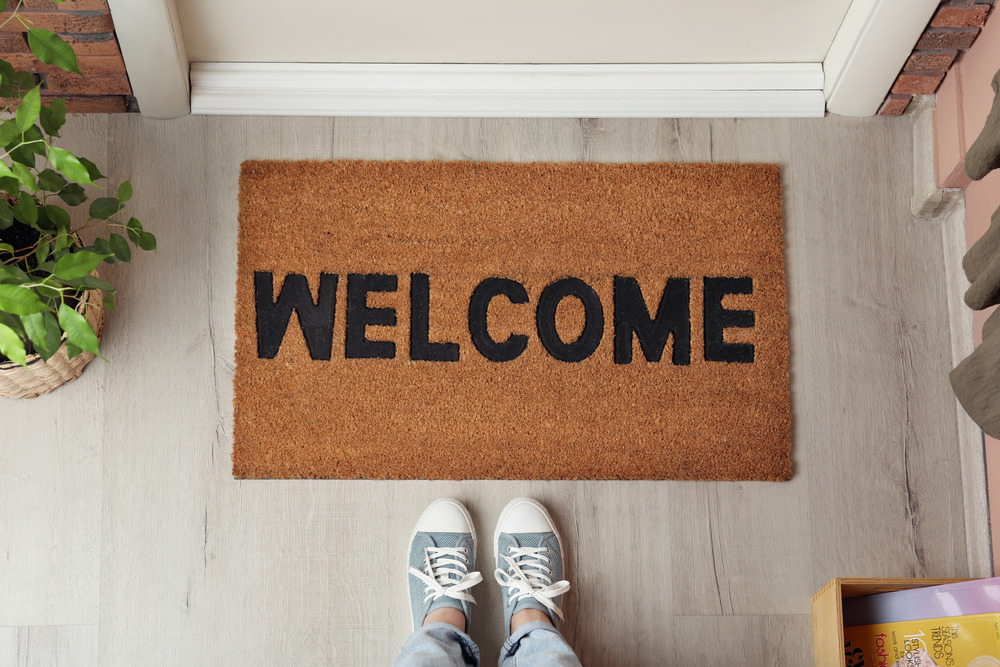When building a house, it can be both an exciting and overwhelming experience. You’ll have to take an active role in your new home construction from the design phase with the architect to implementation with the builder. Additionally, you’ll have to make decisions on fixtures, features, and what to do if things deviate from the desired plan. In this article, we’ll give you some new home buyer tips and things to consider as a first-time buyer.
Home Buyer Checklist When Building A House
Building a new house from the ground up is something you will learn from and when finished properly, will leave you a home that brings you pride. In the process it will test your metal, so you’ll need to make sure you have a few things in line before taking the plunge.
FINANCING OR HOME LOANS
The first step of buying anything is securing the money to make the purchase. Unless you are fortunate enough to pay cash, most likely you will have to seek financial assistance when building a house. Before diving into home loans and taking out more credit, think about some factors that could help with bringing your costs down.
Given the plan for your new house is set the way you want it, have you considered building in a neighboring city where real estate and property taxes are cheaper? Are there any federal programs like USDA loans that require no down payment when building a house? Do any of your investments allow for borrowing for first-time homebuyers without penalties like a Roth IRA? All these things are ways that can pay off big to bring your total home build cost down and keep your dream home intact without compromise. However, make sure you follow the rules and guidelines when taking any financial assistance to avoid fees or penalties.
In addition, make sure your financial health is strong and you have at least three to six months of living expenses saved up, as lenders may require this. Lenders may also want your housing expenses to equal out to 30% of your income, so your current earnings (along with your credit history) will show lenders you can keep your head above water with a new home purchase.
A REAL ESTATE AGENT
Do you really need a real estate agent if you are buying a newly constructed house? It is always recommended to have a trusted real estate agent, even when building a new house. A real estate agent’s job is to protect your best interest and ensure your buyer’s rights are properly upheld. Additionally, they can find lots that match your preferences and build requirements, help negotiate to price, read over contracts and participate in the punch list at the end of the construction to catch flaws you may not notice before closing business with the builder.
HOMEBUILDER AND CONTRACTORS VERIFIED
Before contracts are signed and the first dollar is exchanged, know your home builder. Check their credibility online and website. Ask around and look at reviews. If you can, meet in person with your home builder and have them walk you through the process, show you a model home, and win you over with their responsiveness, professionalism, and expertise. Research should also be done on any contractors you choose to hire as well, as there are cases where some will take the money and disappear.
READINESS FOR DELAYS
Even if a builder promises a reasonable timeline for completion, things can happen to slow the home building process down. Weather, material shortages, building issues, contractor schedules, and other unforeseen things can interfere and even halt progress. With that being known, don’t plan to move in until everything is complete and in working order.
If something needs changing or fixed, it’s easier to get it finished right away while the contractors are fresh off the job and your stuff is not in the way. It’s hard to wait another minute when you see your new custom home fully constructed. However, ignoring adjustments now could cost you years of frustration if left undone or grief trying to fix things after being unpacked.
CONSIDERED FORGOTTEN FEATURES

Many people will consider the number of bedrooms and bathrooms when building a house but fail to think of the little things like closet space, wiring, resell value, and energy use. As a new home buyer tip, don’t neglect to put thought into these commonly overlooked features.
Storage – It’s not the most fun or exciting thing to think about, but it’s one of the most overlooked parts of a home. As your family grows and you accumulate things, toys, books, tools, kitchen gadgets, and more, you’ll be happy to know you can still fit your dishes and towels in the same place.
Colors – The more neutral the colors of your interior, the easier it is to match new furniture and décor. Going with bold, dark or exotic colors can be fun for a short time, but they may not hold up over time and are a trouble to paint over.
Modesty – Even though your new custom home is being built for you, it may not be the last home you live in. With that in mind, choose carefully the embellishments and features so that it can have a balance of general appeal and not be too expensive on the resale compared to homes in the area. Given you don’t go feature crazy, your home will be easier to sell if you decide to do so in the future.
Energy Efficiency – Think through and research how to make your new home energy efficient and as green as possible. This includes how you place your windows, where you put your bathrooms and garage, and what kind of appliances and toilets you choose. Since heating and cooling make up 45% of utility bills for most homeowners, don’t go cheap on your HVAC system. You want to ensure your HVAC matches your home size and your insulation is of good quality and installed correctly. For future expansion, you may want to have your roof built to accommodate solar to save on electricity, and run a direct gas line for outside gas grills to save on propane.
Power Access – Ensure outlets are designed into the places you’ll need them like in bathroom vanities for powering hair dryers, and plenty in the kitchen to power appliances. When building a house, you’ll want to include power outlets and hose spigots on each corner raised off the foundation to power yard tools and have reach for watering the yard or washing the family car…or dog! Include a 220V in the garage to power tools or recharge that future electric car.
Lights and Sound – Have powered lights for any halls, cabinets, closets, attic and other places that may get dark or have very little access to natural outside light. You may want to consider soundproofing walls that need them to block outside noise or the thunder of the theater room’s surround sound.
Pet Planning – you may want to include special places for your pets to have baths, doors to go in and out, or even an exhaust fan in the room the litter box resides (like the laundry room).
It is a beautiful thing when building a house from the ground up, but it can be stressful. Financial preparation and working with trusted professionals can greatly ease your burden through handling one of your biggest life investments. If you have any questions or would like more new home buying tips, contact Deltona and we’ll be happy to assist you in your journey to make your dream home a reality.


Recent Comments